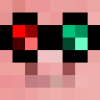Posted 20 July 2013 - 07:09 AM
I've recently been programming my own API, which is now at about 1000 characters. I went back to make alterations to old code and obviously, found it very hard to read.
As I am intending to share the code at a later point, I was hoping to find guidelines on what "tidy code" is. I'm not a programmer, so I've really very little experience in writing code, yet alone for other peoples' use. One thing I find hard to decide on is how many comments to put in, especially when i'm not sure what is and isn't obvious.
Also, sorry if there are posts for this already, but the word "tidy" doesn't get you very far with this search engine.
Any help would be fab,
Thanks in advance
As I am intending to share the code at a later point, I was hoping to find guidelines on what "tidy code" is. I'm not a programmer, so I've really very little experience in writing code, yet alone for other peoples' use. One thing I find hard to decide on is how many comments to put in, especially when i'm not sure what is and isn't obvious.
Also, sorry if there are posts for this already, but the word "tidy" doesn't get you very far with this search engine.
Any help would be fab,
Thanks in advance




